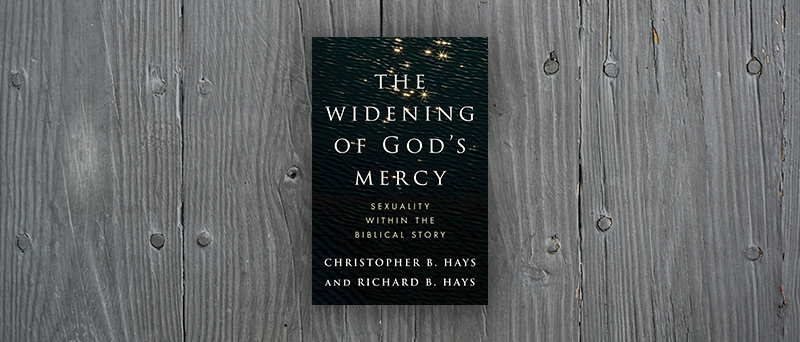There’s a moment at the end of the 2023 Oscar nominated movie Past Lives that is so honest, so restrained, so quietly moving, I haven’t stopped thinking about it. The film, directed by Celine Song, follows Nora and Hae Sung—two childhood friends from South Korea—who reconnect as adults in New York City, with Nora now a married woman.
Over the course of a few days, they quietly explore the possibility of what could have been: a different life, a different marriage, a different love story.
And yet, despite their emotional connection and the unresolved ache between them, Nora does not betray her husband. There is no affair, no impulsive leap, no rewriting of vows in the name of authenticity. Instead, there is a quiet, sobering affirmation of fidelity, even when life seems to be begging you to stray.
In an age that celebrates reinvention and limitless romantic choice, Past Lives reveres the quiet dignity of fidelity. There’s no sermon, no slogan—just a powerful portrayal of staying true. It reminded me that in our cultural moment, where “ethical non-monogamy” is gaining popularity, the beauty of exclusive, covenantal love still speaks with power.
What Is “Ethical Non-Monogamy”?
To be fair, many who embrace Ethical Non-Monogamy (ENM) are thoughtful, emotionally intelligent people seeking honesty, openness, and freedom from the wounds of betrayal. ENM is often defined as any romantic or sexual relationship involving more than two people, where all parties are aware and consenting. It includes open relationships, polyamory, throuples, and swinging.
The word “ethical” is key. Practitioners emphasize transparency, negotiation, and mutual respect. Unlike secret affairs, ENM is meant to avoid deception by making the arrangement open and agreed upon by all involved.
But while the motivation may be honest, the framework is flawed. ENM assumes that consent alone makes a relational dynamic ethical. As long as everyone agrees, it’s good. But this assumes that relational ethics are constructed only through mutual preference—not through deeper truths about love, the human person, and the sacred nature of covenant.
Even when practiced with sincerity, ENM ultimately fails to deliver the safety, depth, and transformative love our hearts are made for.
Why ENM Falls Short of Real Intimacy
1. It Misunderstands What Creates Safety
ENM often arises from a desire to avoid deception and possessiveness. These are real issues that have plagued relationships for millennia. But in seeking freedom from those distortions of love, ENM often strips away the very thing we seek most in relationships: emotional safety rooted in exclusive, enduring commitment.
Modern psychology affirms what Scripture has always taught: humans flourish in secure, attached, long-term bonds. Attachment theory shows that healthy adult relationships require consistency, clarity, and emotional exclusivity to thrive.1Sue Johnson, Hold Me Tight: Seven Conversations for a Lifetime of Love (New York: Little, Brown Spark, 2008).
Jesus, when asked about marriage, pointed back to the created order: “A man shall leave his father and mother and be joined to his wife, and the two shall become one flesh… what God has joined together, let no one separate” (Matthew 19:5–6, NRSV). This is not mere traditionalism—it’s a vision of love that is holistic, permanent, and exclusive.
2. It Overvalues Autonomy and Undervalues Covenant
ENM is built on the belief that individual freedom is the highest value in a relationship. You shouldn’t have to give up your autonomy for anyone—not even your partner. But true intimacy asks more of us than honesty and preference. It calls us to mutual self-giving love.
As Paul teaches, “Submit to one another out of reverence for Christ” (Ephesians 5:21). Love does not demand personal sovereignty—it invites surrender for the good of the other.
The late theologian Elizabeth Achtemeier wrote, “In Christian marriage, the purpose is not self-fulfillment, but self-giving; not personal happiness, but mutual holiness.”2Elizabeth Achtemeier, The Committed Marriage (Philadelphia: Westminster Press, 1976), 14. This is the beauty of covenant: not two people orbiting one another in fear of losing their independence, but two people drawing close enough to be changed.
3. It Offers Breadth When We’re Made for Depth
A common defense of ENM is that no one partner can meet all your needs. This is true—and also irrelevant. There are many avenues to pursue relational intimacy that don’t require compromising marital fidelity. We all take a village to become who are we meant to be. We need our friends, our church, and a robust union with God cultivated in what Jesus calls “the secret place” (Matthew 6:6).Covenant love was never about meeting every need, but about choosing depth over breadth.
ENM chases novelty. Covenant digs roots. And in doing so, it allows love to mature, refine, and deepen in ways that serial or parallel connections never can.
In her groundbreaking book The Case Against the Sexual Revolution, journalist Louise Perry writes, “The liberal feminist attitude to sex—that it is just a fun, meaningless form of recreation—has been a disaster for many women.”3Louise Perry, The Case Against the Sexual Revolution: A New Guide to Sex in the 21st Century (Cambridge, UK: Polity Press, 2022), 109. She argues that freedom without structure has produced harm, not healing—especially for the most vulnerable. Monogamy doesn’t guarantee depth. But it makes depth possible in a way ENM cannot.
4. It Introduces Instability into Family and Community
Even the most conscientious ENM relationships struggle to provide emotional clarity for children. Family structures shaped by fluidity and multiple partners—no matter how well-meaning—often produce confusion, not security.
Tim Keller observed, “The reason the marriage covenant is so important is because society needs a framework in which to raise the next generation with stability, love, and moral formation.”4Timothy Keller, The Meaning of Marriage: Facing the Complexities of Commitment with the Wisdom of God (New York: Dutton, 2011), 29. Covenant marriage doesn’t just benefit the couple—it protects children, sustains communities, and anchors cultures.
5. It Can’t Bear the Weight of Real Love
Ultimately, ENM often collapses under its own aspirations. Despite its emphasis on honesty and freedom, people in ENM arrangements frequently report increased levels of jealousy, anxiety, and emotional exhaustion.5Brendan Zietsch et al., “The Psychology of Consensual Non-Monogamy,” Annual Review of Psychology 71 (2020): 49–76.
Real love—love that heals, transforms, and endures—requires a kind of permanence that ENM is structurally incapable of offering. We hunger for safety and vulnerability in relationships, that is what real love requires. ENM, under the auspice of safety and vulnerability, actually prevents us from deepening the relationships we have. The next partner becomes a way to protect ourselves from the knowing eyes of our current one. ENM becomes a way for people to buffer themselves from genuine love and authentic vulnerability. C.S. Lewis put it best:
“To love at all is to be vulnerable. Love anything and your heart will be wrung and possibly broken… The only place outside Heaven where you can be perfectly safe from all the dangers of love is Hell.”6C.S. Lewis, The Four Loves (New York: Harcourt, 1960), 121.
Love is only safe when it is is tested with depth. And it is only truly intimate when it is rooted in promise.
The Beauty of Fidelity
Christian marriage is not just a moral rule—it’s a living sign of the gospel. When two people promise to love, serve, and stay with one another for life, they embody something deeper than emotion: they reflect the unwavering love of God for His people.
Fleming Rutledge wrote, “Faithfulness in love is one of the deepest mysteries of the Christian life—it mirrors the very character of God.”7Fleming Rutledge, The Crucifixion: Understanding the Death of Jesus Christ (Grand Rapids: Eerdmans, 2015), 601. In a world of temporary connections, fidelity becomes prophetic. It says: Love is not disposable. People are not interchangeable. Intimacy is not transactional.
Fidelity is not the absence of desire. It is the daily choice to direct desire toward one person, again and again. It is a holy form of resistance—a protest against a world that treats commitment like confinement.
If you’re exploring ENM or know someone who is, know this: the desire for honesty, safety, and deep connection is good. But ENM cannot deliver what your heart truly longs for.
Covenantal love offers a better way—not because it’s easy, but because it’s true. It tells the story of a God who doesn’t trade us in when we fail. Whose faithfulness is not a mood. Who doesn’t negotiate the terms of His love. Who stays.
And in a world addicted to novelty, love that stays is not just beautiful. It’s holy.
References
- 1Sue Johnson, Hold Me Tight: Seven Conversations for a Lifetime of Love (New York: Little, Brown Spark, 2008).
- 2Elizabeth Achtemeier, The Committed Marriage (Philadelphia: Westminster Press, 1976), 14.
- 3Louise Perry, The Case Against the Sexual Revolution: A New Guide to Sex in the 21st Century (Cambridge, UK: Polity Press, 2022), 109.
- 4Timothy Keller, The Meaning of Marriage: Facing the Complexities of Commitment with the Wisdom of God (New York: Dutton, 2011), 29.
- 5Brendan Zietsch et al., “The Psychology of Consensual Non-Monogamy,” Annual Review of Psychology 71 (2020): 49–76.
- 6C.S. Lewis, The Four Loves (New York: Harcourt, 1960), 121.
- 7Fleming Rutledge, The Crucifixion: Understanding the Death of Jesus Christ (Grand Rapids: Eerdmans, 2015), 601.











